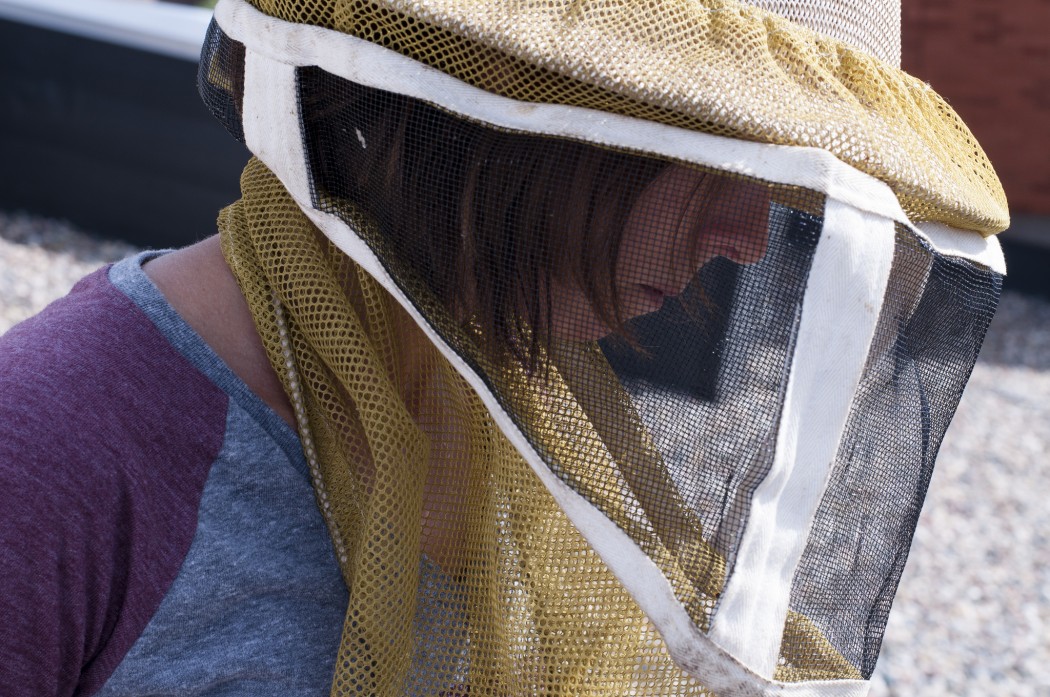By Jim Grupp
There are a lot of us “new comers” in our bee club, just starting our beekeeping this year. Thought it might be interesting to the “old and experienced” beekeepers reading Bee Culture and the others just getting started like myself to hear some tales from the “new hive.”
First, not sure what you call us new beekeeping folks? In sports, the new guys and girls are called “rookies”; in the trade professions the term used is “apprentices”; and at the U.S. Military Academy at West Point, right out my back yard, the new comers are called, “Plebes.”
So what do we call us “fledgling” beekeepers; just trying to learn a whole lot about keeping bees in a relatively short time – how about “New-Bees” – sound about right? I know that is how I feel at times as I try to learn the tricks of the trade in keeping bees; a “Neew-Bee”, just crawling out of my cell ready to be nursed on the ways of the hive before fully flying out on my own to master the intimacies of backyard beekeeping!
One thing I quickly learned is we have a pretty special club, the Beekeepers of Shawangunk, “BOS.” I really enjoy going to our meetings. They are professionally run with a whole lot of knowledge put forth in a very short time – kind-of-like the intense Honey Flow this Summer – lots of nectar and pollen coming in from all over, very quickly. In our case folks from varied backgrounds and experience share their beekeeping knowledge and “tricks of the trade” over two plus hours so we all can benefit, learn and in the end be better stewards of our bees!
Sometimes I feel like I’m drinking from the “honey-lode” of beekeeping wisdom as I sit and listen to all at our meetings. The time spent “packing the information into the honey comb of cells” in my brain is invaluable as I forge ahead with my beekeeping chores. I also found that if you ask each of the 30 or so experienced beekeepers at our meetings a question about bees and the hive, you will get 30 different beekeeping answers.
Much like the bee colonies themselves, each Beekeeper is different and unique and each has their own way of doing things – and their way works. So for us “New-Bees,” we get to shift though all that fine wisdom and then decide or experiment on what works or will work best for us. This is invaluable knowledge, like the best honey of the year. We feed on it and will eventually grow out of the “New- Bee” stage into a worker bee, an experienced beekeeper and maybe someday a queen bee. I do know it is taking me a lot longer than “21 days it takes a worker bee to hatch”, to reach that point – but I feel the wisdom of our club and Bee Culture will help power all us “New-Bees” into full-fledged, functioning Beekeepers.
I have often also heard it said by many at our meetings that, “The bees take care of themselves.” I have to admit in my short months of keeping bees that is exactly right. Screw up the frame comb, they will repair it; put the frames in crooked, they will “comb them together”; leave cracks in the supers, they will cement them shut; work too quickly around the hive, they will remind you to work slowly with a sting or two; provide too little water for their needs, they will use your pool; not provide enough ventilation or space in the hive, they will beard; provide a nice vegetable garden, they will pollinate it – they do what they have to do to survive and build their colony – we provide them with some of resources to help them and strengthen them along their way.
As a “New-Bee” I have actually learned that. I am sure many of the “New-Bees” reading this feel the same way. I also treasure the experiences of learning from the bees: watching them at the landing board come and go and dance; opening the hive and hearing the buzz from with-in; then smelling the scents of honey, pollen, brood and smoke all mixed together; looking with amazement at the frames filled with honeycomb, eggs, larvae, capped brood, pollen and honey with thousands of bees working on them; then closing up the hive and seeing all the bees return to put their home back together.
For me personally, another real beekeeping thrill was the very first time I saw one of “my golden orange” honey bees collecting pollen from a garden bed around our house. Really, felt like “proud Poppa” as I watched “my bees” dig into those garden flowers. In fact I became so aware of all their pollinating work, I now watch where I mow the grass – trying not to hit any of them collecting the white clover flower nectar and pollen in my lawn.
Like the title of this short story says, “Confessions of a New Beekeeper” – I would have never ever thought I would worry about how I mowed my lawn – now I do – don’t want to possibly injure or kill any of the “ladies”. Plus, I leave the lawn longer so the weeds can flower and bloom. My neighbors have made a comment or two about that! Yes, I’m a Neew-Bee and the neighbors now know that also!
Perhaps my most exciting “New-Bee” experience came the other morning. My hives sit about 10 feet off the ground on an old foundation. Below the hives is a swatch of wild flowers, orange, white and yellow in color. These flowers attract all kind of pollinators – bumblebees, wood bees, honey flies, honey bees and wasps. That morning when I went to make my daily check of the hives all these insects were doing their thing amongst those flowers – a pretty amazing, buzzing sight of activity framed by the rays of the morning sun.
Then the movement of a hummingbird caught my eye. She was also working these same flowers right below the hives along with all the other pollinating creatures. Wow – what an unbelievable sight and I smiled! I thought about the video clip showed at one of our meetings, “The Pollinators” and then of Louis Armstrong’s famous song –” What a Wonderful World! This magnificent living “video,” played out right in front of me really put this bee keeping stuff in a truly wonderful perspective.
Yup, confessions from a “New-Bee” and like many “New-Bees”, I have learned a lot quickly. I also know I still have a ton to learn about bees and beekeeping. The experiences so far have been enlightening and rewarding. I truly do enjoy learning about these insects and providing them with “tools” and resources to help them build strong and vibrant hives.
Mostly, I have learned to look at the world a little differently now. The flowers and their pollinators have taken on a “new light” in my life. They have slowed me down a bit, which is good. I have also enjoyed and am tremendously grateful for all the wisdom and knowledge shared at our BOS meetings and in Bee Culture Magazine – without that I would be a struggling “New-Bee” not one that is looking forward to developing into an experienced Beekeeper! Thanks to all and especially to those intriguing “bugs” we call honey bees!













